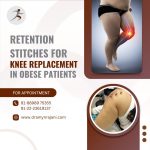Joint pain is a common complaint among people of all ages, often resulting from conditions such as arthritis, overuse, or injury. However, an overlooked factor contributing to joint pain is a deficiency in Vitamin D. Vitamin D plays a crucial role in maintaining bone health and function, and its deficiency can contribute to a variety of joint-related issues, including stiffness, pain, and inflammation. Understanding the connection between Vitamin D and joint pain is key to managing and potentially alleviating symptoms.
What is Vitamin D and Its Role in Joint Health?
Vitamin D is a fat-soluble vitamin that is essential for several bodily functions, including calcium absorption, bone health, immune system support, and regulation of inflammation. The body can produce Vitamin D when exposed to sunlight, but it is also found in certain foods such as fatty fish, fortified dairy products, and eggs.
Vitamin D is primarily known for its role in calcium absorption, which is vital for maintaining strong, healthy bones. Without sufficient Vitamin D, bones can become weak and brittle, leading to conditions like osteomalacia (softening of the bones) or osteoporosis (bone thinning). This can result in joint pain, stiffness, and an increased risk of fractures.
How Does Vitamin D Deficiency Contribute to Joint Pain?
When there is a Vitamin D deficiency, the body struggles to maintain proper calcium levels, which are essential for bone strength and function. Inadequate Vitamin D levels can lead to weakened bones and joints, causing pain and discomfort. Vitamin D also plays a role in regulating the immune system, and its deficiency can lead to inflammation, which is another contributing factor to joint pain.
Some of the ways Vitamin D deficiency can cause joint pain include:
- Weakened Bones: When bones lack the necessary calcium due to insufficient Vitamin D, they become fragile and more susceptible to stress fractures, resulting in joint pain.
- Increased Inflammation: Low Vitamin D levels can trigger increased production of inflammatory cytokines. This can contribute to chronic inflammation in the joints, leading to conditions such as osteoarthritis and rheumatoid arthritis, both of which are characterized by joint pain.
- Muscle Weakness: Vitamin D also affects muscle strength. A deficiency in Vitamin D can lead to muscle weakness, which may put additional strain on joints, exacerbating pain.
- Worsened Osteoarthritis Symptoms: Studies have shown that Vitamin D deficiency may exacerbate symptoms of osteoarthritis, a common form of arthritis that leads to joint pain, swelling, and stiffness, particularly in the knees, hips, and hands.
Who Is At Risk of Vitamin D Deficiency?
Certain groups of people are more likely to experience Vitamin D deficiency, which can, in turn, lead to joint pain. These include:
- Elderly Individuals: As people age, their skin becomes less efficient at producing Vitamin D, and they may not absorb it from food as effectively.
- People with Limited Sun Exposure: Individuals who live in areas with long winters, those who spend little time outdoors, or people who wear sunscreen regularly may have lower levels of Vitamin D.
- Individuals with Darker Skin: People with darker skin have higher melanin levels, which reduces the skin's ability to produce Vitamin D from sunlight.
- People with Certain Medical Conditions: Conditions such as obesity, kidney disease, and gastrointestinal disorders can interfere with Vitamin D absorption or metabolism, leading to deficiencies.
- Pregnant Women: Pregnant women, especially those who have limited sun exposure or dietary intake of Vitamin D, are at a higher risk of deficiency.
Managing Vitamin D Deficiency to Reduce Joint Pain
Addressing Vitamin D deficiency can significantly improve joint health and reduce pain. Here are some effective strategies for managing Vitamin D deficiency:
- Increase Sunlight Exposure: Spending time in the sun, especially during the midday hours, is one of the most effective ways to boost Vitamin D levels. Aim for at least 10-30 minutes of sun exposure several times a week, depending on skin type and location.
- Vitamin D-Rich Foods: Incorporate more Vitamin D-rich foods into your diet, such as fatty fish (salmon, mackerel, tuna), fortified dairy products, egg yolks, and fortified cereals.
- Vitamin D Supplements: In cases where sunlight exposure and diet aren’t sufficient, Vitamin D supplements may be necessary. Consult a healthcare provider to determine the right dosage and form of Vitamin D for your needs.
- Regular Monitoring: If you're experiencing joint pain or other symptoms associated with Vitamin D deficiency, it’s important to consult an orthopaedic doctor in Mumbai for testing. Regular monitoring of Vitamin D levels can help ensure that deficiency is managed before it leads to more serious joint issues.
When to See a Specialist
If you’re experiencing persistent joint pain that doesn’t improve with rest or over-the-counter pain relief, it’s important to see a joint replacement specialist in Mumbai. In some cases, joint pain caused by Vitamin D deficiency can be a sign of a more serious condition such as arthritis or a bone-related disorder. Early diagnosis and treatment are key to preventing further joint damage and improving quality of life.
Dr. Amyn Rajani - Expert Care for Joint Pain and Vitamin D Deficiency
If you are experiencing joint pain and suspect that a Vitamin D deficiency may be contributing to your symptoms, seeking the guidance of an experienced joint replacement surgeon in Mumbai is crucial. Dr. Amyn Rajani, a renowned expert in joint replacement and orthopaedic care, specializes in treating knee, shoulder & hip joint pain and related conditions. With years of experience and a commitment to personalized care, Dr. Rajani helps patients manage their joint pain through advanced diagnostic tools and treatment options, including joint replacement surgery when necessary.
Dr. Rajani offers comprehensive consultations to determine the underlying cause of your joint pain, whether it’s related to Vitamin D deficiency or other factors. By addressing the root cause of the problem, he provides effective solutions to alleviate pain and improve mobility.
For more information or to book a consultation with Dr. Amyn Rajani, visit OAKS clinic at Hughes Road, Mumbai or website www.dramynrajani.com or simply call on Clinic Number 91-88989 75355 / 91-22-23619137 to take the first step towards a pain-free future.



